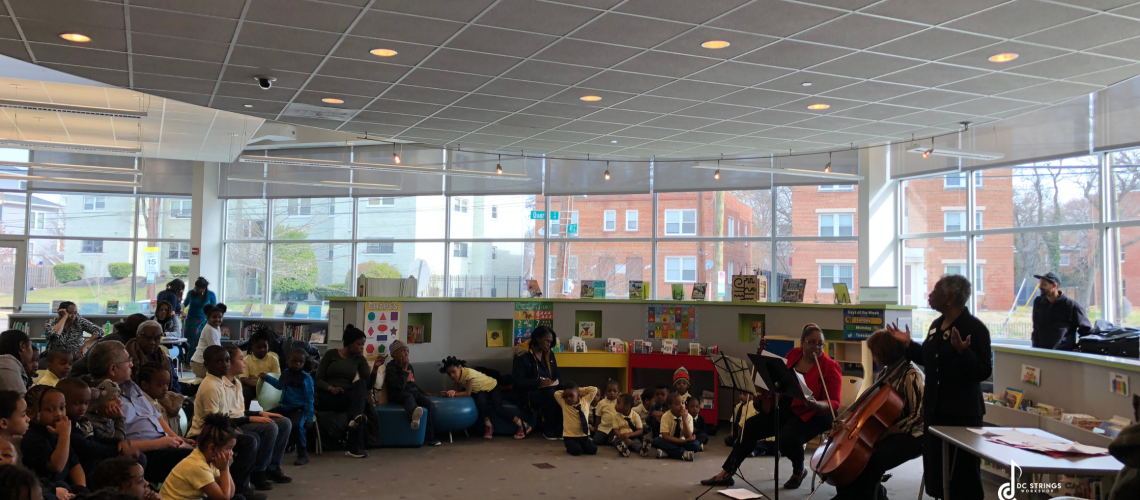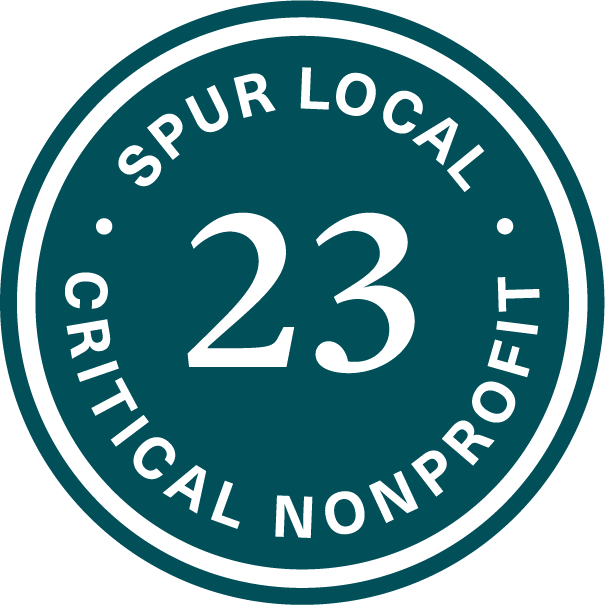How Music Education Sharpens Young Minds
For students who dream of mastering musical instruments along with math equations and literature classics, the gift of music is the gift that keeps on giving. Music education has numerous benefits for development, but one of the most researched is its positive impact on academic achievement across subjects. From stroking keys and plucking strings to playing winds and banging drums, students that participate in DC Strings programming discover their talent and watch their grades soar.
About DC Strings
The non-profit in the heart of Washington, D.C., knows that music and academic success go hand in hand. DC Strings offers weekly group classes and private lessons on violin, viola, cello, bass, guitar, and piano for students of all ages and skill levels. Their dedicated instructors teach the joys of musicianship while improving critical thinking, literacy, and quantitative skills.
For seven years, DC Strings has fueled students’ passion for music learning. The experience pays dividends in the classroom through increased proficiency in math, reading, and verbal skills. The interplay of melody and rhythm with numbers, words, and logic activates the brain in wondrous ways.
Learning Music Increases Student Achievement
Learning a musical instrument engages both hemispheres of the brain simultaneously. The left side is critical for recognizing patterns and sequences while the right side excels at tonal, spatial, and aesthetic processing. When students play music, these functions work together to interpret melodic motifs, rhythmic passages, and harmonic structures.
This bilateral brain activity strengthens connections and gives developing minds a powerful cognitive boost. Musical training not only stimulates innate mental talents but also transfers strengthened abilities to other scholastic subjects. In short, time in music class makes a student more equipped for time in math, literature, science, and history class.
Music students also demonstrate better reading and verbal proficiency. Studies show they earn higher grades in foreign language classes as music activates these same communication centers of the brain. Following musical notes and expressions enhances linguistic and listening abilities.
At DC Strings, youth reap these cognitive rewards. Whether learning musical notation, rhythm comprehension, or chord progressions, the multi-sensory artistic experience bolsters academic skills.
Understanding Music Boosts Student Learning Habits
Playing an instrument also requires dedication, regular practice, and learning from mistakes. These habits instill self-discipline and persistence that serve young learners well when tackling academic studies. With improved focus, concentration, and work ethic, students can tackle more challenging assignments and advanced classes.
For example, research shows that students with musical training score higher on standardized math tests than their non-musical peers. Experts suggest that reading music notation shares similarities with recognizing number patterns. Both mathematics and music rely on perceiving relationships between elements like rhythm and ratios.
Students arrive eager to play their instrument of choice and soak up the supportive environment. Instructors get to know each student’s strengths to tailor lessons for optimal learning and growth. Group classes also unite students in motivating musical teams.
Beyond core academics, music education has also been linked to improved attendance and graduation rates. Schools with music programs report higher test scores and grade point averages compared to non-musical schools. College admissions officers also favor artistic pursuits as indications of well-rounded students.
Arts Programs Are Critical to Student Success
While some cut music and arts programs to focus on traditional academic topics, especially amidst budget constraints, research clearly indicates music boosts overall scholastic performance. Far from distracting students, music making is a vital form of mind exercise.
At DC Strings Workshop, developing musicians reap these benefits. Students not only gain artistic skills and cultural appreciation but also build the mental muscle crucial for academic achievement. Parents watch children excel in the classroom thanks to their musical journeys.
Conclusion
DC Strings instructors recognize their roles in this success. They provide encouragement and structure to help students progress steadily. Milestone recitals give students confidence performing for small audiences. As musical abilities grow, so does academic confidence.
With access to quality music education and inspiring instructors, DC Strings lights a spark within students. Playing beloved instruments with technical precision and emotional expressivity brings joy along with improved cognition. Academic studies become easier and more fruitful thanks to this gratifying musical training.


